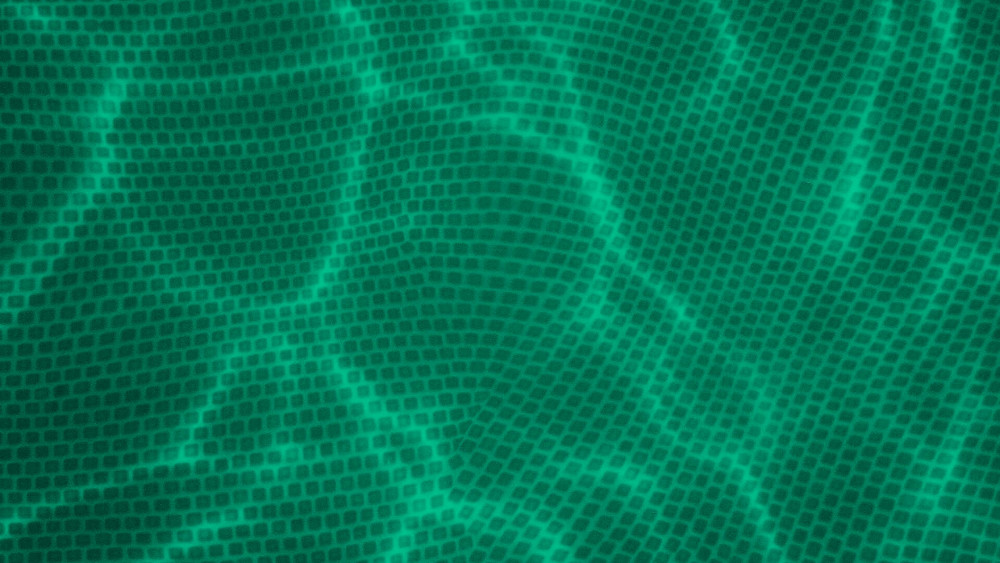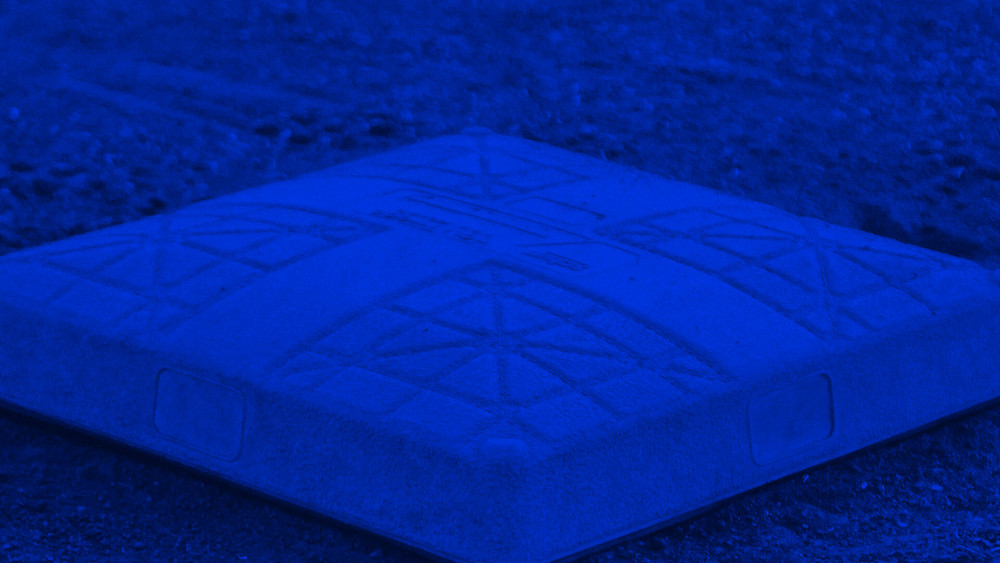You have just bought your dream house in your dream neighborhood. You have paid your dues to the HOA; you have officially “arrived.” One of the touted HOA rules is that homeowners with outside pets must have a fence. It makes sense. The HOA wants people to be able to walk through the neighborhood without fear of an uncontrolled dog. You have a dog and understand the rule to mean that you need a solid fence with a working gate. Consequently, you spend a significant amount of money building one.
After moving in, you quickly realize (after getting chased by a bold terrier) that your neighbor has a different interpretation of the rule. “I have a fence,” he says. “But it clearly does not work; there is a gap large enough for your terrier to escape. It defeats the purpose of the rule,” you proclaim. “The rules do not say it has to be a certain kind of fence or a certain size, just a fence. And I have a fence.” What your neighbor has said is true; the rule simply says “fence.” He has complied with the letter of the rule, even though his fence clearly is not achieving the purpose of that rule.
This same “open for interpretation” approach to evaluating expert testimony has led to significant disparities among the “fences” erected to protect litigants from the uncontrolled expert witness. While the articulated rules for admitting expert testimony are not that dissimilar across the courts, the judges’ varying interpretations of the role of “gatekeeper” results in drastically different decisions depending on jurisdiction, or even within the same jurisdiction. How can litigants best defend themselves against dubious experts in those jurisdictions that provide more leniency in the “gate” standard than we would like? That is the 50 million dollar question…literally. Just this year, differences in control of the “gate” resulted in a trio of verdicts totaling 200 million dollars in one jurisdiction, while the same arguments and theories were excluded as being “litigation driven rather than objectively and scientifically grounded” in another.[1]
THE IMPACT OF THE GATEKEEPER
Merriam-Webster’s dictionary defines a gatekeeper as “a person who controls access.” Anyone familiar with the law understands the judge is the gatekeeper when it comes to expert evidence. But what does that really mean? Both the federal and varying state rules allow room for judges to interpret their “gatekeeping” role in different ways – which leads to dissimilar results even while following the letter of the rule.
By way of example, the trio of cases totaling 200 million dollars noted above was awarded in the 22nd Judicial District of Missouri. In one of those cases, the court opined that “it [was] clear that Plaintiff ha[d] established a factual basis, in terms of qualified and reliable expert testimony, to make a submissible case as to both general and specific causation.”[2] No further detail or analysis regarding the expert testimony is provided in that Order. In contrast, the judge in the Superior Court of New Jersey (which granted Defendants’ motions to exclude expert testimony) issued a 33-page opinion with five appendices pertaining to the experts’ opinions.[3]
In fact, in the second case of the Missouri trio, the judge denied Defendants’ Motion to Exclude the Testimony of several of plaintiff’s expert witnesses, including two whose methodologies were specifically analyzed, questioned, and ultimately rejected by a similarly situated New Jersey gatekeeper.[4] And while the New Jersey court credited each expert’s intelligence, qualifications, reputation, and general effectiveness as a witness, it ultimately determined that the gate was locked as to their expert conclusions.[5] The “dazzling” presentation was not enough to yield that gatekeeper’s interpretation of how the fence must be guarded.[6]
In the New Jersey opinion, the court cites regularly to its use of The Reference Manual on Scientific Evidence as guidance to sift through the information available at the expert hearings.[7] The court described its gatekeeping responsibility as one “to assess whether the experts in the field would reasonably rely on methods and data as Plaintiffs’ experts have done in this case.”[8] In interpreting the letter of the rule in this way, the judge pointed to specific deficiencies in the experts’ methods, even noting one of the experts mentioned above “ignored the rudiments of the scientific method…”[9] With respect to the specific causation theory set forth by the other expert whose testimony was admitted in Missouri, the New Jersey court found his “methodology” (described as “re-analyzing old studies and subjectively mingling the various risk factors for each Plaintiff in order to prove ovarian cancer by the numbers”) was not a methodology that would be reasonably relied upon by other experts in the field.[10]
Ultimately, the opinions of these two witnesses rose or fell according to the forums’ view of its gatekeeping role – they were allowed to present their “methodology” to juries in Missouri, but were denied passage through the gate in New Jersey because “their areas of scientific inquiry, reasoning, and methodology [were] slanted away from objective science and towards advocacy.”[11] This begs the question: is the stark difference in guarding the fence against the same experts a result of the varying expert standards in those two jurisdictions, or tied to the judges’ views of their roles as gatekeepers?
SO, WHAT IS THE STANDARD?
For many years, the standard known as Frye governed expert opinion admissibility, essentially universally. The Frye standard asked whether the evidence was “sufficiently established to have gained general acceptance in the particular field to which it belongs.”[12] After the Supreme Court’s Daubert decision, the prevailing standard became a series of factors for judges to consider.[13] The Daubert factors were later codified in Federal Rule of Evidence 702:
(a) the expert’s scientific, technical, or other specialized knowledge that will help the trier of fact to understand the evidence or to determine a fact in issue;
(b) the testimony is based on sufficient facts or data;
(c) the testimony is the product of reliable principles and methods; and
(d) the expert has reliably applied the principles and methods to the facts of the case.
The vast majority of states today apply the Daubert standard or some version of it. According to a recent survey, eight states maintain adherence to the Frye standard, while four (Missouri, Nevada, North Dakota, and Virginia) fall in the “other” category.[14] Upon closer inspection, however, even the “other” states have roots in one of the two prevailing views. In fact, Missouri is considered an “other” state because its expert standard is governed by statute; but the language of the statute is similar to the factors of Daubert.[15] And even the District of Columbia Court of Appeals – the original Frye jurisdiction – recently overturned its application of the Frye test in favor of Daubert.[16] In its opinion, the court noted: “General acceptance means just that; the answer cannot vary from case to case.”[17] Only time will tell if Daubert will, in fact, lead to less variance from case to case in the D.C. Circuit, or whether variance will continue based on the gatekeepers themselves.
WILL CHANGING THE LAW “HELP” THE GATEKEEPERS?
We know that different jurisdictions apply different standards. We know that even similar standards can, and often are, interpreted in different ways by different judges. We know this leads to drastically different outcomes depending on the judge and venue. But unless and until the Supreme Court clarifies a more consistent interpretation of the standard, what can we do to change it or at the very least better prepare ourselves for the variances?
Some have advocated a stronger push for a universal standard, or to at least urge the adoption of Daubert by states that have not yet adopted some form of it. The Sunshine State had this same idea just a few years ago. In 2013, the Florida legislature passed House Bill 7015, a hotly contested piece of legislation to formally adopt Daubert.[18] Prior to the bill’s passage, Florida followed the Frye test.[19] Surrounding the debate was the idea that Daubert was more stringent and would subject expert witnesses to greater scrutiny before presenting opinions to a jury.[20] The bill was championed “as a way to cut back on ‘junk science’ and civil-litigation costs.”[21]
But the jury is still out on whether Daubert is the “better” standard. In fact, the Florida Bar Board of Governors voted in December of 2015 to maintain the Frye standard despite the legislation.[22] The Florida Supreme Court heard oral argument in September, 2016 to determine the prevailing standard.[23] Both practical and political questions abound, with strong proponents on both ends of the spectrum (and both sides of the “v”) advocating for each position.
Meanwhile, Missouri is setting the stage for an expert standard battle of its own. Missouri case law acknowledges the statutory standard language is nearly identical to Daubert. In fact, Daubert is intended to provide guidance in interpreting the statute, with the caveat that the statute governs where the two diverge.[24] In response to a push for tort reform in the state, Missouri Senate Bill 59 to formally adopt Daubert was passed through both houses in 2016.[25] But Missouri Governor Nixon vetoed the bill, claiming it “does away with Missouri’s well-established criteria on expert testimony and replaces it with a much more intricate, complicated and costly procedure.”[26]
Politics aside, regardless of the standard you favor, there remains the question how much of a difference the specific standard actually makes. Though Daubert is often described as a more stringent standard, there are studies suggesting Daubert actually allows gatekeepers to substitute their own interpretation and methods of analyzing expert testimony and evidence.[27] A recent article exploring the impact of Daubert from a statistical standpoint even suggests little difference in judicial outcomes between Daubert and Frye.[28]
The Missouri versus New Jersey example described above is telling in this regard. The high dollar verdicts were from Missouri, a state close in form to Daubert, while summary judgment was granted in New Jersey, a state which follows a standard most people say is far less stringent than Daubert. Only time will tell if it is the standard, the judges, or the political environment that really makes the ultimate difference.
WHAT ELSE CAN WE DO?
BETTER EDUCATION?
Perhaps the solution is to better educate ourselves and our judges. Highly technical and specialized scientific concepts are finding greater importance in litigation, particularly as technology advances. In a system that can produce such drastically different results depending on a standard or a specific judicial interpretation, there is only so much we can control. But one thing we can control is the depth of knowledge we have on the technical and scientific concepts. This, in turn, can be better relayed to our judges to give them a deeper understanding of these complex issues. In a system full of gatekeeping and fences we cannot always predict or trust, we should take better control of the things we can.
CREATIVITY?
Acknowledging the variances between and within jurisdictions should equip us to confront these issues with more creative and effective solutions. Consider requesting a “science day” in court, which are becoming more popular for this very reason. A “science day” can be a good opportunity to present the technical and scientific issues in a clear and concise way prior to Daubert or other hearings on expert testimony. This is an important tool in any litigation that will present highly technical or complex scientific, epidemiological, or toxicological concepts. Today’s litigation climate calls for thinking outside of the box for ways to make your voice heard, regardless of the fence you face.
KNOWING THE JUDGE?
Above all else, it is of critical importance to not only know the standard used in your jurisdiction, but the way that gate is controlled by your judge. This will not only impact your strategy in motion practice, but should impact which expert(s) you designate. One expert’s methodology may play better under a Daubert approach than a Frye approach, or vice versa. It is important to consider these issues in light of who is controlling your gate. This makes critical thinking about the “big picture” of litigation more important than ever and can be a powerful tool if executed timely and effectively.
FACE THE FENCE TO UNLOCK THE GATE.
There is not, and may never be, consistency
in how the fence is controlled or how the gate is opened. But being armed with
the knowledge of these challenges will allow you to better craft your strategy
to face the unknown fences you will encounter and the gates you will need to
unlock.
[1] Compare Gloria Ristesund v. Johnson & Johnson et al. (Mo. Cir. May 17, 2016), Jacqueline Fox v. Johnson & Johnson et al. (Mo. Cir. Feb. 26, 2016), and Deborah Giannecchini v. Johnson & Johnson et al. (Mo. Cir. Oct. 27, 2016), No. 1422-CC09012-01 with Brandi Carl v. Johnson & Johnson et al., No. ATL-L-6546-14 (N.J. Super. Ct. Law Div. Sept. 2, 2016) and Diana Balderrama v. Johnson & Johnson et al., No. ATL-L-6540-14 (N.J. Super. Ct. Law Div. Sept. 2, 2016).
[2] Hogans v. Johnson & Johnson, 2015 WL 10353123, *2 (Mo. Cir. Jan. 26, 2015).
[3] Carl v. Johnson & Johnson, 2016 WL 4580145 (N.J. Super. Ct. Law Div. Sept. 2, 2016).
[4] Compare Ristesund v. Johnson & Johnson, 2016 WL 2770656 (Mo. Cir. May 17, 2016) with Carl v. Johnson & Johnson, 2016 WL 4580145 (N.J. Super. Ct. Law Div. Sept. 2, 2016).
[5] Carl, 2016 WL 4580145 at *15, 18.
[6] Id. at *15.
[7] Id. at *2.
[8] Id.
[9] Id. at *16.
[10] Id. at *19.
[11] Id. at *21.
[12] Frye v. United States, 293 F. 1013, 1014 (D.C. Cir. 1923).
[13] Daubert v. Merrell Dow Pharm., Inc., 509 U.S. 579 (1993).
[14] Michael Morgenstern, Daubert v. Frye – A State-by-State Comparison, The Expert Institute (Sept. 18, 2016), https://www.theexpertinstitute.com/daubert-v-frye-a-state-by-statecomparison/.
[15] Mo. Ann. Stat. § 490.065 (2016).
[16] Motorola, Inc. v. Murray, 2016 WL 6134870 (D.C. Oct. 20, 2016).
[17] Id. at *3 (internal citation omitted).
[18] 2013 FL H.B. 7015 (2013).
[19] Eric Giunta, Rick Scott Signs Expert Witness Standard Overhauls into Law, Sunshine State News (June 4, 2013), http://www.sunshinestatenews.com/story/rick-scott-signs-expertwitness-standard-overhauls-law.
[20] Jeff Weiner, Who’s an expert witness? Change in Florida’s standard makes judge ‘gatekeeper’, Orlando Sentinel (Dec. 8, 2013), http://articles.orlandosentinel.com/2013-12-08/news/os-new-expert-rules-florida-courts-20131208_1_expert-testimony-frye-standard.
[21] Id.
[22] Gary Blankenship, Frye standard endorsed by Board of Governors, The Florida Bar News (Jan. 1, 2016), https://www.floridabar.org/__85256AA9005B9F25.nsf/0/03A3F1132F4308A685257F1D00698136?OpenDocument.
[23] W.J. Kennedy, Daubert vs. Frye: Florida Supreme Court sets oral arguments over expert testimony standard, Florida Record (Apr. 13, 2016, 11:43 am), http://flarecord.com/stories/510714673-florida-supreme-court-sets-oral-arguments-over-expert-testimonystandard.
[24] State Bd. of Registration for Healing Arts v. McDonagh, 123 S.W.3d 146, 155 (Mo. 2003).
[25] Missouri Chamber of Commerce, Missouri Senate Acts Quickly on Legislation to Protect Employers in Missouri Courts by Strengthening Expert Witness Standards (Jan. 20, 2016), http://mochamber.com/news/missouri-senate-acts-quickly-on-legislation-to-protectemployers-in-missouri-courts-by-strengthening-expert-witness-standards/.
[26] Office of Missouri Governor Jay Nixon, Gov. Nixon highlights reasons for vetoes in advance of veto session, (Sept. 13, 2016), https://governor.mo.gov/news/archive/gov-nixonhighlights-reasons-vetoes-advance-veto-session.
[27] Barbara Pfeffer Billauer, Daubert Debunked: A History of Legal Retrogression and the Need to Reassess “Scientific Admissibility”, 21 Suffolk J. Trial & App. Advoc. 1, 4 (2016).
[28] Id. at 21.
Finis


